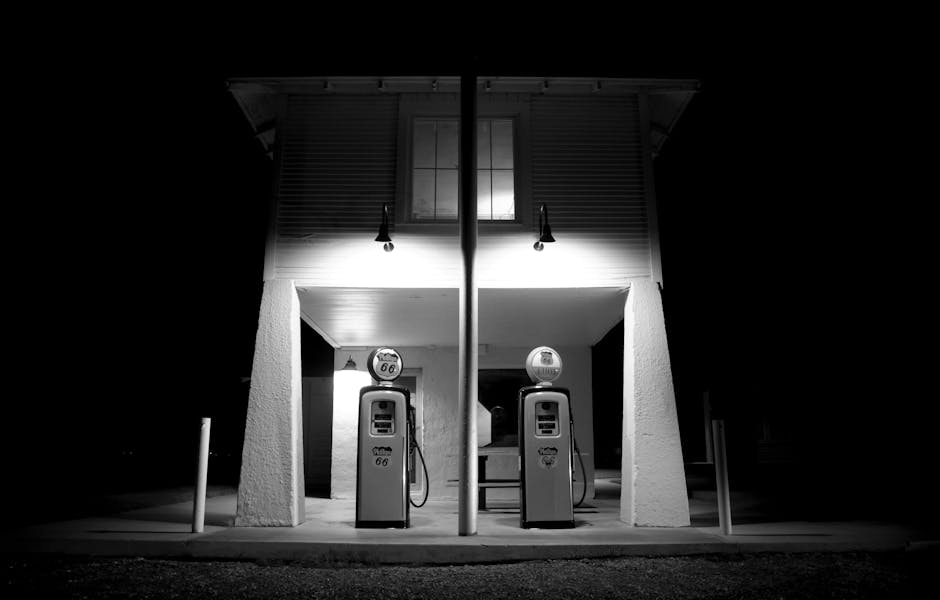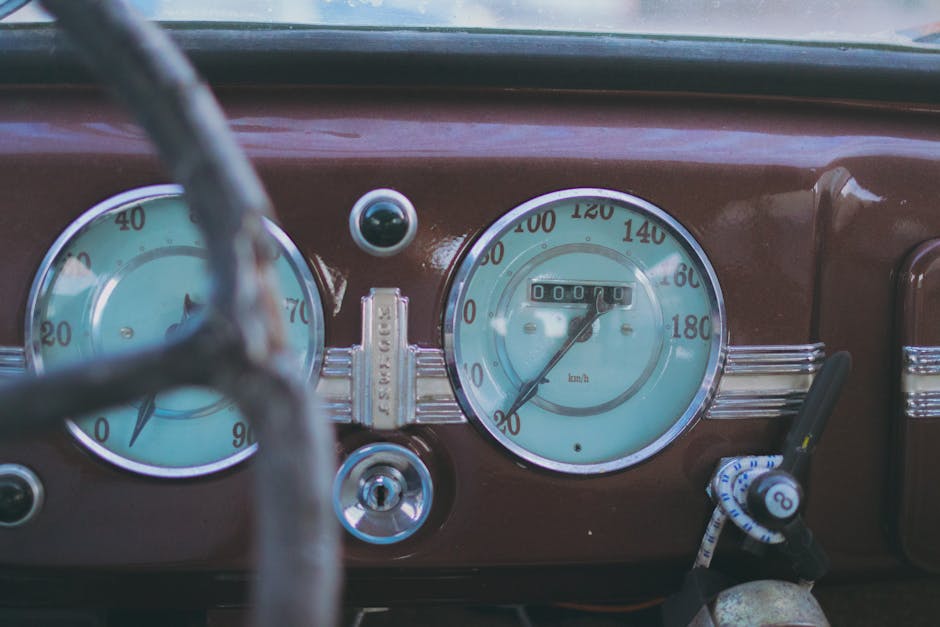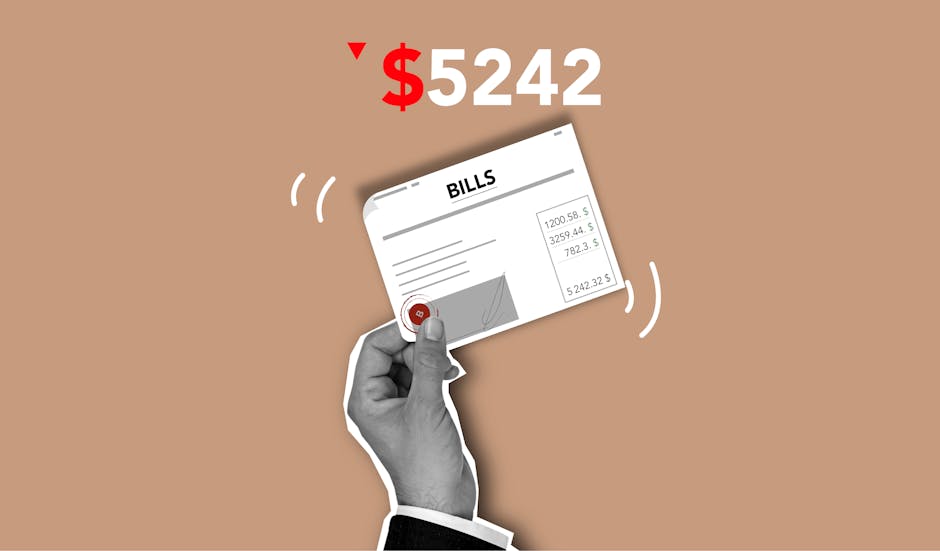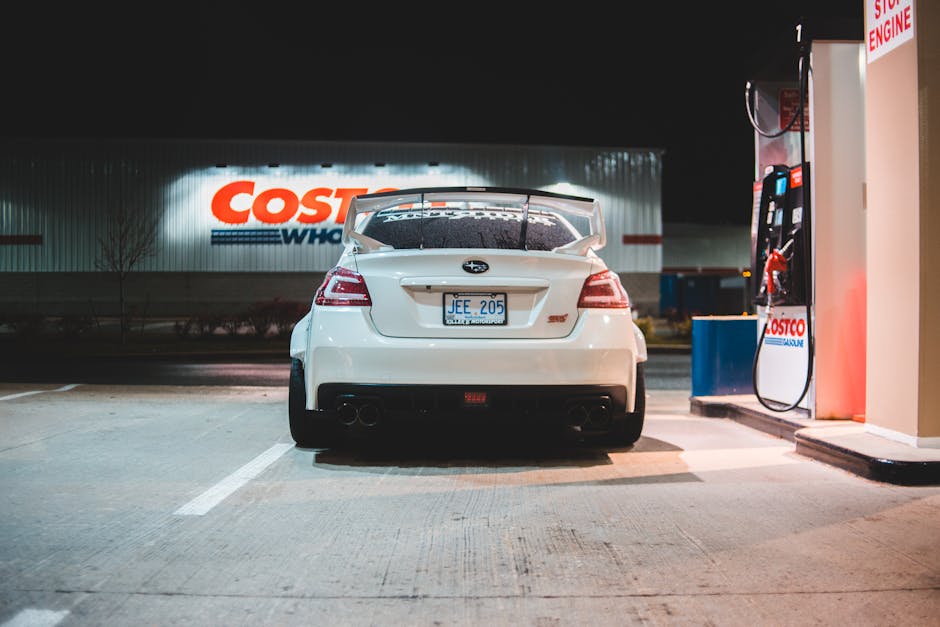How Far Can I Travel On A Full Tank Of Petrol? Our Calculator Explains
In the vast expanse of the open road, where fuel stations are few and far between, one question lingers in the minds of every driver: 'How far can I travel on a full tank of petrol?'
Just as a skilled sailor navigates through treacherous waters with a precise map, so too must drivers arm themselves with knowledge to conquer their journey. Fuel efficiency becomes the compass that guides us towards our destination, ensuring we make every drop of fuel count.
But how do we calculate this elusive distance? What factors affect our mileage? And what strategies can we employ to maximise our car's range?
In this article, we delve into the intricacies of fuel consumption and provide you with an informative guide on planning your road trip fuel stops. Prepare yourself for an exploration into the world of automotive efficiency – where control over your journey lies in your hands.
Key Takeaways
- Electric cars have advantages over traditional petrol cars in terms of fuel efficiency.
- Aggressive driving styles can decrease fuel efficiency and mileage.
- Factors such as fuel quality, vehicle maintenance, driving habits, terrain and weather conditions, and vehicle weight can affect fuel efficiency.
- Proper vehicle maintenance is important for maximising fuel efficiency and range.
Understanding Fuel Efficiency

The concept of fuel efficiency can be better understood by examining how far one can travel on a full tank of petrol. Fuel efficiency refers to the ability of a vehicle to maximise the distance travelled per unit of fuel consumed. It is an important consideration for individuals who desire control over their fuel consumption and costs.
One factor that significantly affects fuel efficiency is the type of car being driven. Electric cars, for example, have distinct advantages in terms of fuel efficiency compared to traditional internal combustion engine vehicles. They convert electrical energy into mechanical energy more efficiently than gasolene engines, resulting in higher mileage per unit of energy consumed. This makes electric cars an attractive option for those seeking greater fuel economy and reduced environmental impact.
Another crucial factor influencing fuel efficiency is driving style. Aggressive driving behaviours such as rapid acceleration, excessive speeding, and sudden braking can significantly decrease mileage. On the other hand, adopting a calm and consistent driving style can optimise fuel consumption by avoiding unnecessary fluctuations in speed and maintaining a steady pace.
Understanding these factors affecting mileage allows drivers to make informed decisions about their choice of vehicle and driving habits. By selecting a more efficient car model like an electric vehicle and adopting a smooth driving style, individuals can effectively increase their mileage per gallon or litre of petrol consumed.
Transitioning into the subsequent section about factors affecting mileage, it is important to consider additional variables such as road conditions, weather, and maintenance practises that also play a role in determining overall fuel efficiency without compromising performance or safety.
Factors Affecting Mileage

One of the key determinants influencing mileage is the presence of external factors that can either enhance or impede fuel efficiency. These factors can have a significant impact on how far you can travel on a full tank of petrol. Understanding these factors is crucial for individuals who desire control over their fuel consumption.
Fuel quality: The quality of the fuel you use in your vehicle directly affects its mileage. Lower-quality fuels tend to have lower energy content, resulting in reduced efficiency and decreased mileage. It is recommended to use high-quality fuels with the appropriate octane rating to optimise fuel efficiency.
Vehicle maintenance: Proper vehicle maintenance plays a crucial role in optimising fuel efficiency. Regularly servicing your vehicle ensures that all components are functioning optimally, reducing friction and maximising mileage. This includes tasks such as changing air filters, keeping tyres properly inflated, and using the right motor oil.
Driving habits: How you drive also affects your mileage. Aggressive driving behaviours like rapid acceleration, sudden braking, and excessive speeding consume more fuel compared to smooth driving techniques. Maintaining a consistent speed and avoiding unnecessary idling can help improve fuel efficiency.
Terrain and weather conditions: The terrain you drive on and the weather conditions can impact your vehicle's mileage. Uphill roads require more power from the engine, resulting in increased fuel consumption. Similarly, extreme weather conditions such as strong winds or excessively hot or cold temperatures can affect aerodynamics and engine performance, leading to decreased mileage.
Vehicle weight: Carrying excess weight in your vehicle puts additional strain on the engine, causing it to work harder and consume more fuel. Removing unnecessary items from your car helps reduce weight and improves overall fuel efficiency.
Considering these factors - including fuel quality and maintenance practises - will allow individuals to optimise their mileage potential before calculating their actual fuel consumption accurately without relying solely on estimations or vague approximations about how far they can travel on a full tank of petrol alone, which ultimately leads to more efficient and cost-effective use of fuel.
How to Calculate Fuel Consumption

To accurately determine the amount of fuel consumed by a vehicle, it is essential to employ a method that considers various factors such as distance travelled and fuel efficiency. Calculating gas mileage accurately allows individuals to have better control over their vehicle's fuel consumption and plan their journeys accordingly.
One way to calculate fuel consumption is by using the formula: Fuel Consumption = Distance Travelled / Fuel Used. This method requires keeping track of both the distance covered and the amount of fuel consumed during that distance. By dividing the total distance travelled by the amount of fuel used, one can obtain an accurate measure of how much fuel is being consumed per unit of distance.
Another approach to calculating fuel consumption is through monitoring the average miles per gallon (MPG) achieved by a vehicle. This method involves recording the number of miles driven on a full tank and then dividing it by the amount of fuel needed to refill the tank. This provides an estimate of how many miles can be travelled on one gallon of fuel.
Importantly, maintaining your vehicle plays a significant role in achieving accurate calculations for fuel consumption. Regular maintenance tasks such as proper tyre inflation, regular oil changes, and clean air filters can improve overall efficiency and contribute to better gas mileage.
Accurately calculating gas mileage is crucial for individuals who desire control over their vehicle's range and want to make informed decisions about planning their trips efficiently. By considering factors like distance travelled, monitoring MPG, and ensuring proper vehicle maintenance, drivers can optimise their car's range while minimising unnecessary refuelling stops or running out of petrol unexpectedly.
Tips for Maximising Your Car's Range

Maximising your car's range can be achieved by implementing certain strategies that optimise fuel efficiency. By adopting fuel-saving techniques, you can make the most out of each tank of petrol, ultimately saving money and reducing your carbon footprint.
One effective technique is to drive smoothly and avoid sudden accelerations or decelerations. Maintaining a constant speed reduces fuel consumption, as frequent changes in velocity require more energy from the engine.
Another way to improve your car's range is to reduce unnecessary weight. Carrying excess baggage or roof racks increases drag and hampers fuel efficiency. Therefore, it is advisable to remove any unnecessary items from your vehicle before embarking on a trip.
Additionally, planning the best time to fill up can also contribute to maximising your car's range. Fuel density varies with temperature, meaning that cooler gasolene contains more energy than warmer gasolene. As a result, filling up early in the morning or late at nite when temperatures are lower can increase fuel efficiency.
To ensure an uninterrupted journey without running out of petrol, it is essential to plan your road trip fuel stops carefully. This involves mapping out gas stations along your route and estimating the distance between them based on your car's average fuel consumption rate. By doing so, you can strategically plan when and where to refuel during long drives.
Incorporating fuel-saving techniques such as driving smoothly and reducing excess weight can significantly enhance your car's range on a full tank of petrol. Additionally, selecting the optimal time for refuelling and thoroughly planning road trip fuel stops will help you maintain control over your journey while maximising fuel efficiency.
Planning Your Road Trip Fuel Stops

Planning your road trip fuel stops involves strategically mapping out gas stations along your route, ensuring a smooth and uninterrupted journey. By carefully planning where to refuel, you can avoid running out of petrol in remote areas or paying exorbitant prices at isolated service stations.
When deciding on the ideal locations for fuel stops, it is important to consider your road trip destinations and budget for fuel costs. Take into account the distance between each destination and identify potential gas stations along the way. Map out these stations to ensure they aline with your planned itinerary.
Budgeting for fuel costs is another crucial aspect of planning your road trip. Calculate the approximate distance between each stop and estimate how much petrol you will need based on your vehicle's average mileage per gallon. Consider any detours or side trips that may add extra mileage to your journey.
To determine which gas stations are most suitable for refuelling, research their availability along your route. Consider factors such as opening hours, amenities offered (such as restrooms or food options), and available services like air pumps or car washes.
Additionally, take note of any loyalty programmes or discounts offered by certain gas stations that could help reduce overall fuel expenses during your road trip. Some chains may provide rewards points that can be redeemed for future purchases or offer lower prices when using affiliated credit cards.
Overall, planning your road trip fuel stops requires careful consideration of both practicality and cost-effectiveness. By strategically mapping out gas station locations, budgeting for fuel costs, and taking advantage of any available discounts or loyalty programmes, you can ensure a seamless journey while keeping control over expenses related to petrol consumption.
Frequently Asked Questions
Can I use the same fuel efficiency calculator for diesel or electric vehicles?
The same fuel efficiency calculator cannot be used for diesel or electric vehicles due to the differences in their energy sources and engine technologies. Diesel vehicles rely on compression ignition engines, while electric vehicles use electric motors powered by batteries. The calculation of fuel efficiency for these vehicles involves different factors such as electricity consumption for electric vehicles and energy density for diesel vehicles.
Therefore, separate calculators are required to accurately determine the fuel efficiency of diesel and electric vehicles.
Is there a significant difference in fuel efficiency between manual and automatic transmission cars?
The fuel efficiency comparison between manual and automatic transmission cars reveals a noticeable difference.
Automatic transmissions generally offer lower fuel efficiency due to their complex design and added weight.
However, the impact of driving style cannot be overlooked, as aggressive acceleration and braking can significantly reduce fuel efficiency regardless of transmission type.
Therefore, it is crucial for drivers to adopt a smoother driving style to maximise fuel economy, irrespective of the transmission choice.
Does driving at higher altitudes affect fuel consumption?
Driving at higher altitudes can affect fuel consumption due to the decrease in air density. As altitude increases, the atmospheric pressure decreases, resulting in reduced oxygen levels. This affects the combustion process in an engine, leading to a correlation between altitude and fuel consumption.
At higher altitudes, engines may require more fuel to maintain optimum performance. Therefore, it is important for drivers to be aware of this effect and adjust their driving habits accordingly to optimise fuel efficiency.
How does the weight of passengers and cargo in the car impact fuel efficiency?
The weight of passengers and cargo in a car can significantly impact fuel efficiency. For instance, a hypothetical case study demonstrated that an increase in vehicle weight by 100 kg resulted in a 2% decrease in fuel efficiency. This effect is primarily due to the additional energy required to accelerate the heavier load.
Additionally, maintaining proper tyre pressure and driving at optimal speeds can also contribute to fuel savings by minimising rolling resistance and reducing aerodynamic drag, respectively.
Are there any specific driving techniques that can improve fuel efficiency?
Driving techniques for better fuel efficiency include maintaining a steady speed, avoiding sudden accelerations and decelerations, and reducing unnecessary idling.
Additionally, minimising air resistance by keeping windows closed and removing roof racks can improve fuel economy. Properly inflating tyres and using the recommended grade of motor oil can also contribute to maximising fuel efficiency.
Implementing these tips can help drivers gain better control over their vehicle's fuel consumption and ultimately save on petrol costs.
Contact us to discuss our services now!

